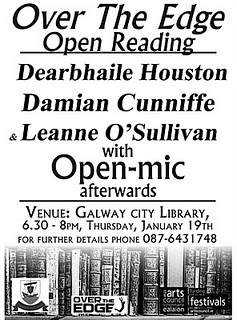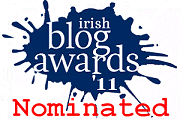 When looking at your reading habits of late, chances are there is a sizable balance between reading the page and screen. The same can be said of your writing habits – be it sitting in your armchair with your laptop or notepad or else on the bus or train and typing a few lines into an app on your smartphone to keep safe for when you get home.
When looking at your reading habits of late, chances are there is a sizable balance between reading the page and screen. The same can be said of your writing habits – be it sitting in your armchair with your laptop or notepad or else on the bus or train and typing a few lines into an app on your smartphone to keep safe for when you get home.
In fact, if you look around on your morning or evening commute (perhaps not you drivers – keep those tired eyes on the road) you will see more and more people glued to the screen of their kindle, ipad or smartphone. Well, for all the bibliophiles among them, there must be something worthwhile that is keeping them from picking up and carrying around their latest paperback or hardback volume. Interestingly, it is not just reading a book or news that are a primary function of these devices as they are becoming much more active and indeed an everyday part of the routine of a reader and/or writer.
There are literally thousands of apps that are very functional and practical for book and word lovers as well as the growing few that are simply just good fun. I have included a selection below of some of the best, most useful and also just good for passing some time on that commute. These are, of course, a tiny fraction of what is out there so if there are apps you use and swear by for all about the written word and e-reading and writing then leave a comment and join in the conversation.
- Kindle App – Android, Iphone, Ipad (Free)
Perhaps the king of the e-book/e-reading revolution, this allows you to take your kindle library on-the-go on your smartphone. Very functional and a handy substitute should you leave your Kindle at home or forget to charge it.
- Ibooks – Iphone, Ipad (Free)
As you would expect from Apple, this is a slick and good looking, user friendly e-reading app. Allows you to purchase and download to your device and read on the go. As with most of these types of apps (smartphone, ipad, tablet etc) there is a backlight that can tire the eyes
- Aldiko – Android (€2.99)
E-reading device app that allows for adjustable font type, size, colour and line spacing. Download directly from online store direct to your phone or tablet – a good android alternative to ibooks.
- Bookcrawler – Iphone, Ipad ($1.99)
A great app for the book anaoraks. It allows you to create your very own personal library catalogue. Using your phone or Ipad 2 camera you can scan the book barcode and Bookcrawler will generate the relevant catalogue information. You can add tags, collection information, custom fields and decimals (to note the location of books in a personal library). There’s also an option to link it to a book in the iBooks, Kindle, or Stanza apps, and you can even mark a book that you’ve loaned out. Simples.
- Audible – Android, Iphone (Free)
A much loved and widely used app that makes listening to digital audio-books on the go a doddle. It’s layout is easy to navigate and also includes chapter navigation, annotated bookmarks, sleep mode, stats (who doesn’t love stats?) One pity is you can no longer download direct from your phone but Wifi transfer from your computer-based Audible account works well. Put on your headphones and enjoy.
- Dropbox – Iphone, Ipad, Android (Free)
One of the great file storage and docu-portable apps that allows up to 2 gbs (Free!) of storage. You can sync across devices that you have Dropbox added to so you can write in your phone, view it on your tablet and email it from your desktop. Life A.D. (After Dropbox) is so much simpler.
- Evernote – Android, Iphone, Ipad (Free)
Another app that, like Dropbox, you can sync across multiple devices, you will never be stuck when out and on the move when inspiration strikes. Write directly into Evernote and save for access later. A great feature allows you to record and save audio notes and photographs via your phone’s camera directly into the app. Another real beauty of this app is the organisation it allows, start various ‘notes’ for various stories or chapters or ideas, or even the shopping list.
- Goodreads – Andoid (Free)
A solid all-rounder. Goodreads allows you to scan book barcodes to catalogue and save your library, to always have your personal library catalogue with you. You can search across Google and Amazon for prices, reviews and ordering. Build your own profile and join in groups. Good reads is very good.
Just for Fun:
- miTypewriter: The Amazing Typewriter App – Iphone, Ipad ($3.99)
The most expensive of the apps shown here but just great fun! This is a good old-skool typewriter gone digital. There is just something about that font and type that makes want to nip down to your granny and beg for that typewriter buried in the attic. Your typed master pieces can be emailed for printing later. All you are missing is the ‘clack’ and ‘ding’ of the real thing.

















